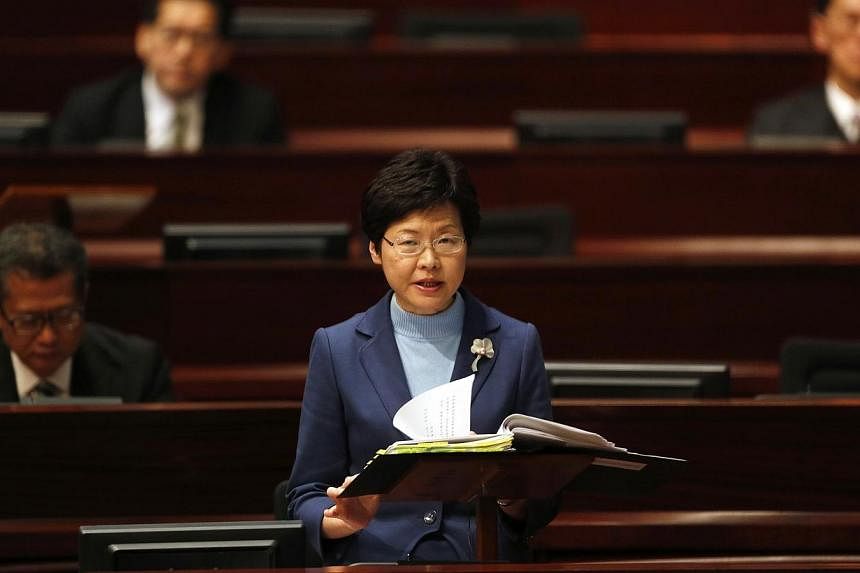HONG KONG (Reuters) - The Hong Kong government on Wednesday cemented its support for China's plan to pre-screen candidates for the city's 2017 leadership election, just weeks after the authorities cleared the streets of protesters pushing for greater democracy.
Chief Secretary Carrie Lam, in an address to lawmakers, framed the debate about Hong Kong's future as one about how an existing, Beijing-approved election nominating committee will operate rather than whether the committee should continue to exist. "Constitutional development must be built on the basis of the Basic Law and the decision of (China's) NPCSC (National People's Congress Standing Committee), otherwise it would only be futile and impractical and the aim of universal suffrage for the CE (Chief Executive) election would only become a 'castle in the air'," Ms Lam said, reading from the Hong Kong government's consultation document.
Ms Lam also warned that if lawmakers failed to approve the plan, electoral reform could be postponed until 2022. A vote is expected in the spring.
Democratic lawmakers carrying bright yellow umbrellas that came to symbolise the pro-democracy movement walked out of the Legislative Council just as Ms Lam rose to speak.
The former British colony was handed back to China in 1997 under a "one country, two systems" formula with the eventual goal of universal suffrage.
The Basic Law is Hong Kong's mini-constitution, which allows it wide-ranging autonomy and freedoms not granted in Communist Party-ruled mainland China.
The NPC is China's largely rubber-stamp Parliament.
The protesters had demanded open nominations in the 2017 election, saying the pre-screening of candidates made a mockery of the concept of universal suffrage.
Police arrested pro-democracy activists and cleared most of the main protest site in December, marking an end to more than two months of largely peaceful street demonstrations.
Hong Kong Chief Executive Leung Chun Ying, widely criticised in Hong Kong for his handling of the protests, released a statement late on Tuesday denying media reports that he had told Beijing he would not stand for re-election.

